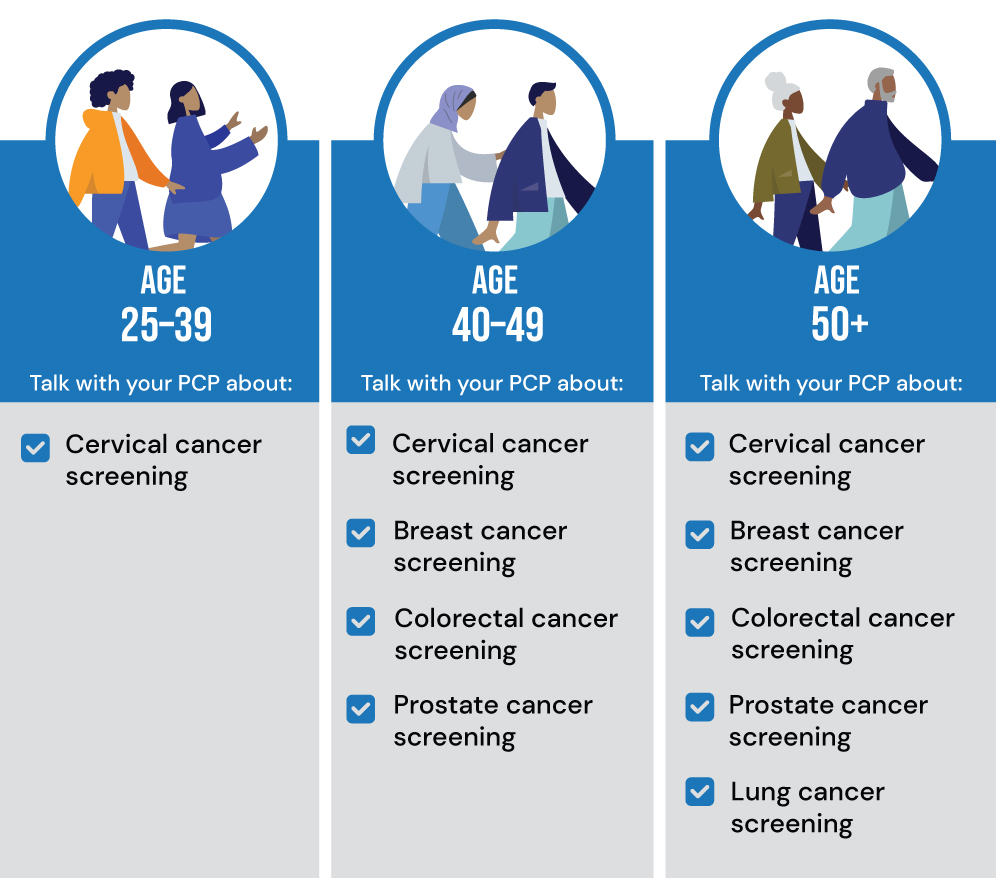Jan 26, 2024
When should I get screened for cancer?
When Mike Grover had an annual check-up with his new PCP a few years ago, his doctor asked about Grover’s family history and current health status, and had a discussion with him about labs and tests he should get based on his age and history.
“He’s like a great detective — he’s wicked thorough and detailed and doesn’t miss a beat,” Grover said of his new doctor.
One test revealed something crucial: cancer. It was caught early enough to be curable.
Grover underwent surgery and six months of chemotherapy in 2020 and continued to undergo close surveillance including CT scans, blood work and more screenings for three years after to “make sure we don’t give this thing a chance to come back. Whatever it takes, I’m in, I’m game,” he said.
At 50, he is cancer free at this point.
“The oncologist said that if I had waited six months or a year to get screened, this would have been a completely different conversation,” Grover said. “I asked him, ‘Would it have been about palliative care?’ and he said, ‘Yes, absolutely.’ It gives me goosebumps just thinking about it.”
Watch Mike Grover's story here
An important conversation
Several types of cancer deaths are at all-time lows, and clinicians give increased screenings some of the credit for that trend.
Screenings should take place based on a patient’s unique family background and health concerns, discussed with a primary care provider, said Blue Cross Blue Shield of Massachusetts SVP of Performance Measurement and improvement Dr. Mark Friedberg, who is an internist. That kind of consistent, open communication, he noted, can help prevent unnecessary screenings that can potentially lead to false positives, invasive procedures and needless worry and cost.
It’s a balancing act. Everyone should have regular conversations with their doctor to determine the cancer screenings that are right for them, given their age, health status and family history.

said Dr. Friedberg
Friedberg encourages patients to be aware of current screening guidelines so they can speak with their clinician about the types of tests that might be appropriate, including the following:

Age 25–39 screening recommendations
Cervical cancer screening is recommended for people beginning at age 25. (A two-part vaccination also is recommended to prevent human papillomavirus, the virus that causes cervical cancer, for boys and girls between ages 9 and 12.)
Age 40–49 screening recommendations
Cervical cancer screening is recommended in consultation with your primary care clinician.
Patients should discuss breast cancer screening (beginning at age 40-45), colorectal cancer screening (beginning at age 45), and prostate cancer screening (beginning at age 45) with their primary care clinician.
Age 50+ screening recommendations
Cervical cancer screening is recommended in consultation with your primary care clinician.
Patients should discuss breast cancer screening, colorectal cancer screening, and prostate cancer screening with their primary care clinician.
People who currently smoke or formerly smoked should discuss lung cancer screening with their primary care clinician.
Did you find this article informative?
All Coverage content can be reprinted for free.
Read more here.

